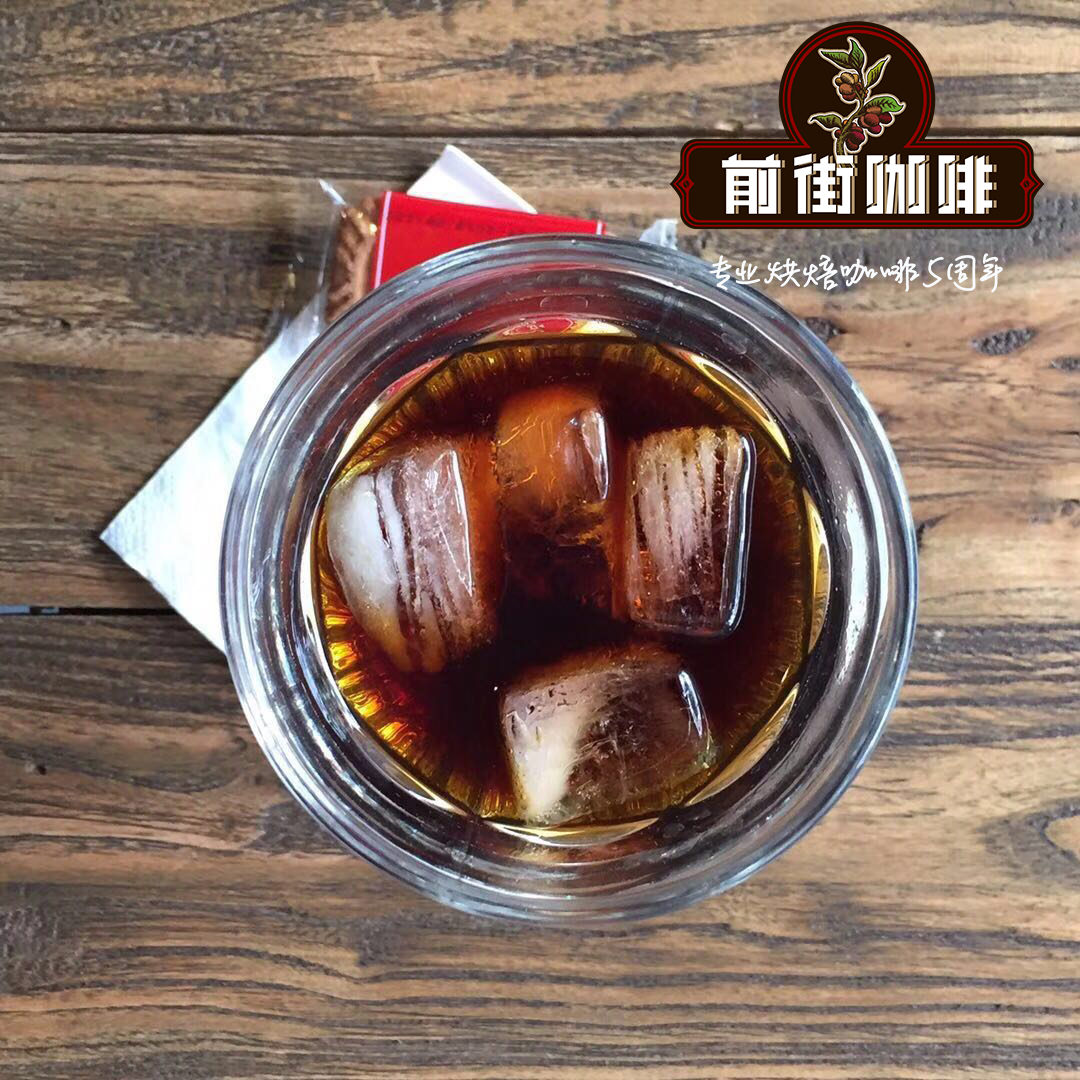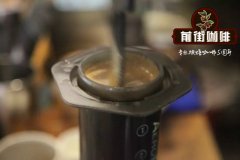American Coffee producing area Manor Farm introduces how American coffee farmers grow, produce and process coffee beans

Professional coffee knowledge exchange more coffee bean information please follow the coffee workshop (Wechat official account cafe_style)
A day in the life of a coffee farmer
He lives in a traditional coffee area; it was founded by his ancestors a century ago. But he really didn't know where they were; he only cared about his grandparents-those who raised him and grew coffee plants-so that he could go to school and raise his family. Since his grandparents died 30 years ago, he and his father have taken care of the land and continued to harvest coffee plants. Unfortunately, because of his planting age, he had to start preparing a plant nursery to replace the old plants. Since then, he has been growing thousands of coffee plants.
He has seen how yields are affected by climate change, and if you ask this question, he can tell you that warm weather can affect the flowering of plants, and another problem that worries him is deforestation in the region. A few years ago, the price of coffee was very low, so my neighbor decided to grow other crops and raise cows. The decline in the national coffee market is mainly due to the fact that the government began to import coffee from public roasting companies from Brazil and Honduras.
As a result, local farmers are in trouble. So they switched coffee plantations to other crops and cows. However, the side effects are soil erosion and the loss of organic matter. When the drought occurred three years ago, many farmers were in serious trouble due to short-term crop water shortages and drip irrigation systems.
"cows don't have enough water," Francisco said. " Not only that, the country's rising inflation has made daily life more difficult-just to buy feed for cows and fertilizer for crops. Recently, coffee prices across the country have begun to rise, making coffee cultivation profitable again. As the need for coffee plants increases, Francisco and the plant nursery once again have more work.
The harvest time in his place is between June and July. He woke up and got dressed to start a new day: a pair of boots and old trousers-once belonged to his father. His wife prepares coffee for him before taking the children to school (a six-kilometer walk). When Francesco drinks coffee, he is ready for all the tasks that must be done during the day. At the same time, he is worried about the existence of "Broca" (bean beetles) in the plantation. He removes damaged cherries every week to reduce the number of beetles that threaten to reduce production.
Once he is out, it is only a short walk to the plantation. He patiently collected ripe cherries and put them in a jar attached to his belt, and then put them on the clean floor near his home. This process is repeated all day. During the lunch break, his wife Maria called to tell him to have lunch: he planted the bean soup in the backyard and harvested it last week. By the end of the day, he had collected more than 500 kilograms of cherries. Then he put them on the clean ground and let the sun dry. After being busy, Francesco was able to pay attention to other daily activities-having dinner and talking about school with his children. Usually, they are good children with good behavior, but even so, they can sometimes give their parents a headache. By 10:00 in the evening, all the lights went out and everyone must have a rest. In the next four days, daily life is very similar and priority is given to picking. A week later, he had collected most of the ripe cherries on his small plantation, put them in a dry place, and then put them in a sack. He put the sacks on the 1970s Toyota truck and moved them to a small and rusty facility where the flesh in the beans would be removed. After that, weigh the beans, as this is the last step before selling the harvest to the coffee industry.
When the machine removes the pulp, Francisco pays and talks to other coffee farmers who also arrive that day. He kept staring at his coffee to make sure it didn't mix with other farmers' coffee. Under the present circumstances, every bean has become valuable. After the service was finished, he went home and continued to dry the beans for a few days. So far, his harvest is about 10 sacks.
Next, he can plan to go to the nearest coffee roaster, which offers a better price, a three-hour drive from where he lives. First of all, it takes two hours to get to Trujillo, and the chosen route is a road with little maintenance and an irregular surface that is a challenge for most vehicles-except motorcycles and pickup trucks. Along the way, he saw many acquaintances who walked into the city on foot. As the public transportation in this area is very difficult, he usually gives his friends a ride.
Once in the city, he needs some documents to pass smoothly, because some police and soldiers try to use any excuse to get farmers to commit violations, perhaps so that they can get some harvest from them. For this reason, many farmers try to deal with paperwork with community representatives. However, because farmers in rural areas usually do not have access to the Internet or printing devices, there is still a lot of work to be done to get all the documents they need.
After leaving the small city of Trujillo, Francisco arrived in the town of "Flor de Patria" and tried to sell his coffee to a roaster company with the same name as the town. Within the company, coffee is inspected, evaluated, weighed and finally paid for. These ten sacks are enough for Francisco to pay a lot of debt and buy food and other goods for his family for at least a few months. Inflation is a specter that has always plagued the Venezuelan economy, threatening the pockets of farmers and consumers. Still, Francesco was happy because he could breathe a sigh of relief.
Coffee roasting company "Cafe è Florde Patria"
The medium-sized private company, located in the Venezuelan state of Trujillo, is an important source of employment and business in the region. It also participates in cultural and sports events.
When farmers like Francisco bring raw beans into the company, the whole baking process begins. There, they were received by two old and grumpy men who had years of expertise in coffee inspection and were verifying the quality of coffee beans. After approval, workers put coffee beans into machines that filter and shake coffee beans to remove waste and wood branches. After that, the coffee beans are put into the oven, and technicians keep watching the baking temperature and take samples at regular intervals to verify the baking degree. Some samples will be sent to a small laboratory within the company for further evaluation. The alarm indicates the end of the baking cycle, and finally, the finished coffee beans are placed in a circular container, the metal rotating claws stir the coffee beans to release heat, and then the coffee beans are sent to the grinder and packaging device.
Although the company can process about 30 tons of coffee a day, its production capacity is still very low because there is not enough coffee to reach the company to reach its full potential. This is due to social and political factors over the past decade; the reduction in coffee cultivation in the country has led to coffee shortages throughout the country. Nevertheless, the company is still active in providing products such as Gourmet and Premium coffee to big cities, such as "Maracaibo" and "Caracas" where major customers are located. At the same time, companies and public organizations are working together to promote the use of acid-resistant coffee varieties. They hold meetings with farmers, try to interact more with them, and work together to solve current problems.
Due to inflation, many people in rural areas are baking their own coffee for their own use, while coffee plantations formerly used to raise cattle are turning back to growing coffee, a valuable product that is becoming new cash for farmers. They began to spend some of their harvest on other products and commodities. This may be an example of how farmers and sustainable agriculture become a priority for politicians, because without farmers, there would be no food, coffee or society.
Important Notice :
前街咖啡 FrontStreet Coffee has moved to new addredd:
FrontStreet Coffee Address: 315,Donghua East Road,GuangZhou
Tel:020 38364473
- Prev

The country of Yongchun, Guatemala Antigua Uria Farm Coffee introduction Guatemala Coffee Association
For more information on coffee beans, please follow the Coffee Workshop (Wechat official account cafe_style) Guatemala, which belongs to the bean-producing region of Latin America and is the westernmost country of Central America bordering Mexico, Belize, Honduras and El Salvador. Guatemala is known as the land of Yongchun, and the Indian language stands for forest land for coffee over the past hundred years.
- Next

Organic Coffee Garden in Simao District, Yunnan Province Dakaihe Lin run Coffee tastes good? what are the varieties of Lin run coffee?
Professional coffee knowledge exchange more coffee bean information Please pay attention to Coffee Workshop (Wechat official account cafe_style) the quiet and quiet Dakaihe Village is closely adjacent to Taiyang River Park (National Forest Park), with mountains connected and water systems connected, giving Dakaihe Village a unique ecological advantage. What makes this small village more beautiful and fragrant is the coffee all over the mountains. Photo lift
Related
- Does Rose Summer choose Blue, Green or Red? Detailed explanation of Rose Summer Coffee plots and Classification in Panamanian Jade Manor
- What is the difference between the origin, producing area, processing plant, cooperative and manor of coffee beans?
- How fine does the espresso powder fit? how to grind the espresso?
- Sca coffee roasting degree color card coffee roasting degree 8 roasting color values what do you mean?
- The practice of lattes: how to make lattes at home
- Introduction to Indonesian Fine Coffee beans-- Java Coffee producing area of Indonesian Arabica Coffee
- How much will the flavor of light and medium roasted rose summer be expressed? What baking level is rose summer suitable for?
- Introduction to the characteristics of washing, sun-drying or wet-planing coffee commonly used in Mantenin, Indonesia
- Price characteristics of Arabica Coffee Bean Starbucks introduction to Manning Coffee Bean Taste producing area Variety Manor
- What is the authentic Yega flavor? What are the flavor characteristics of the really excellent Yejasuffi coffee beans?

